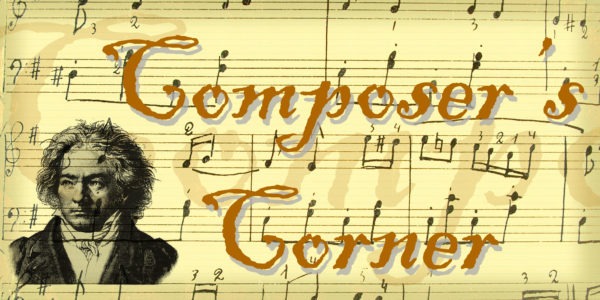 Leonard Bernstein, Pianist, Songwriter (1918–1990), was one of the first American-born conductors to receive worldwide fame. He composed the score for the Broadway musical West Side Story.
Leonard Bernstein, Pianist, Songwriter (1918–1990), was one of the first American-born conductors to receive worldwide fame. He composed the score for the Broadway musical West Side Story.
Synopsis
Leonard Bernstein was born on August 25, 1918, in Lawrence, Massachusetts. Flamboyant, inspired and voracious in his conducting style, Bernstein got his big break conducting the New York Philharmonic in 1943. He was one of the first American-born conductors to lead world-class orchestras. He composed the score for the musical West Side Story. After battling emphysema, he died at the age of 72.
Early Life
Leonard Bernstein was born on August 25, 1918, in Lawrence, Massachusetts. His birth name was Louis, the name his grandmother adored, but his family always called him Leonard or Lenny, which he officially renamed himself when he was 16. His father, Sam Bernstein, was a Russian immigrant who in his native Ukraine was destined to become a rabbi. Once he arrived and settled on New York City’s Lower East Side, the elder Bernstein took up working as a fish cleaner. He eventually got a job sweeping floors in his Uncle Henry’s barbershop and then landed a position stocking wigs for a dealer. He eventually built a rather profitable business distributing beauty products. Leonard grew up understanding that business and success were paramount, and “occupations” in the field of music and art were simply off-limits.
It was at the age of 10 that Leonard first played piano. His Aunt Clara was going through a divorce and needed a place to store her massive upright piano. Lenny loved everything about the instrument, but his father refused to pay for lessons. Determined, the boy raised his own small pot of money to pay for a few sessions. He was a natural from the start, and by the time his bar mitzvah rolled around, his father was impressed enough to buy him a baby grand piano. The young Bernstein found inspiration everywhere and played with a voracity and spontaneity that impressed anyone who listened.
He attended Boston Latin School, where he met his first real teacher and his lifelong mentor, Helen Coates. After graduating, Lenny entered Harvard University, where he studied music theory with Arthur Tillman Merritt and counterpoint with Walter Piston. In 1937, he attended a Boston Symphony concert conducted by Dmitri Mitropoulos. Bernstein’s heart sang when he saw the bald Greek man gesture with his bare hands, exuding a rare kind of enthusiasm for every score. At a reception the next day, Mitropoulos heard Bernstein play a sonata, and he was so moved by the young man’s abilities that he invited him to attend his rehearsals. Leonard spent a week with him. After the experience, Bernstein was determined to make music the center of his life.
To strengthen his technical skills, he spent a year of intensive training at the Curtis Institute of Music in Philadelphia. He studied conducting with Fritz Reiner, a man who believed in mastering every detail of every piece. Bernstein benefited from the discipline, but he believed in more than the mechanics. In 1940, when he was 22, the Berkshire Music Center at Tanglewood invited Bernstein to join some 300 other talented students and professional musicians for a summer of musical exploration and performance. Leonard was one of only five students accepted in the master class in conducting that was taught by the fame Serge Koussevitzky. The man became a father figure to Lenny, encouraging his belief in the power and importance of music.
Musician, Composer and Conductor
Despite Bernstein’s passion and brilliance, he found himself out of work after the summer at Tanglewood. For a while he took odd jobs transcribing music, but then, out of pure luck, he was offered the position of assistant conductor of the New York Philharmonic. Due to the war draft, very few able musicians remained stateside. The conductor Artur Rodzinski was given the rather unconventional recommendation of an American-born assistant—the asthma-stricken Bernstein. On November 14, 1943, Bernstein was called at 9 am. The symphony’s guest conductor, the very prestigious Bruno Walter, had fallen ill. Rodzinski—able but generous—ordered Bernstein to step up and conduct that afternoon’s concert. Step up he did. The young conductor amazed his crowd and his players. Ecstatic applause implored The New York Times to publish a front-page article about his performance. Overnight, Bernstein became a respected conductor, one who would lead the Philharmonic 11 times by the end of the season.
From 1945 to 1947, he conducted the New York City Center orchestra and appeared as a guest conductor across the United States, Europe, and Israel. In 1951, Bernstein married the Chilean actress Felicia Cohn Montealegre, with whom he had three children. In that same year, he wrote the musical Trouble in Tahiti (1951), a 45-minute two-character chamber piece about a bored, upper-middle-class couple.
Leonard’s musical life continued to blossom, taking him on several international tours during the 1950s. In 1952, he founded the Creative Arts Festival at Brandeis University. He also found a love for teaching. The television shows “Omnibus” and “Young People’s Concerts” allowed him to speak to a whole new audience of music lovers. Always a fan of both classical and pop music, Bernstein wrote his first operetta, Candide in 1956. His second work for the stage was a collaboration with Jerome Robbins, Arthur Laurents and Stephen Sondheim, the beloved musical West Side Story. When it opened, the show garnered unanimous rave reviews, matched only by its movie version released in 1961.











Leave a reply